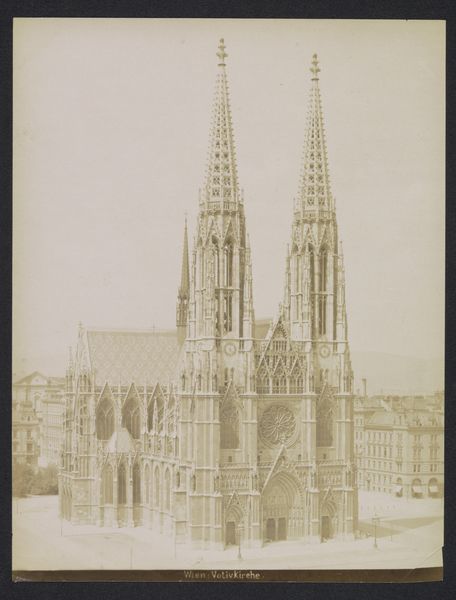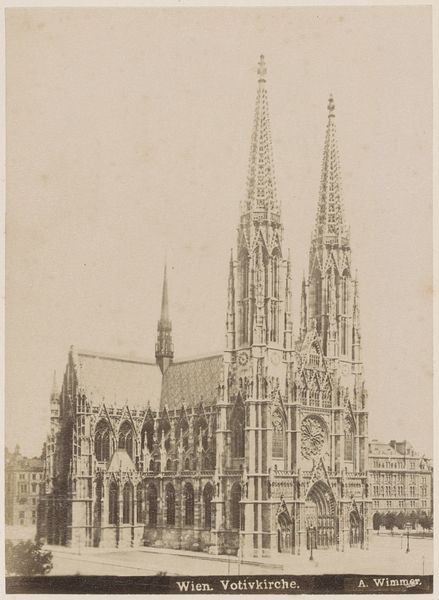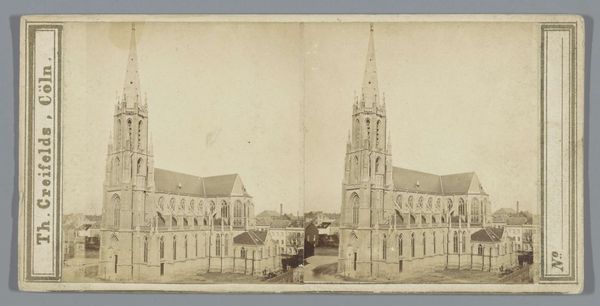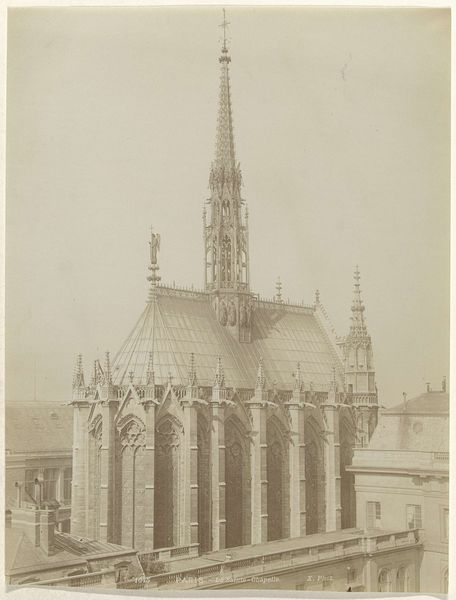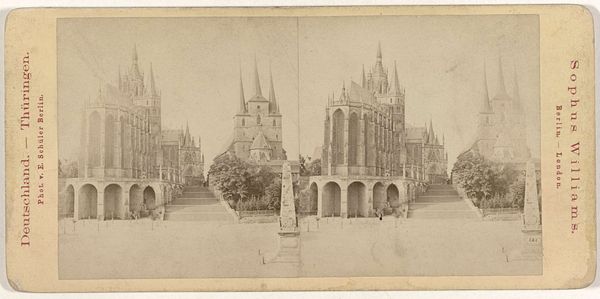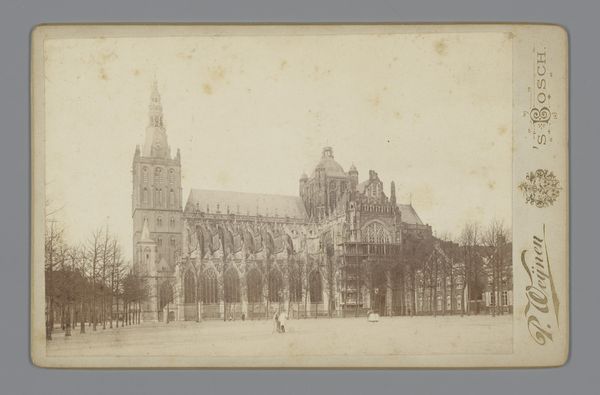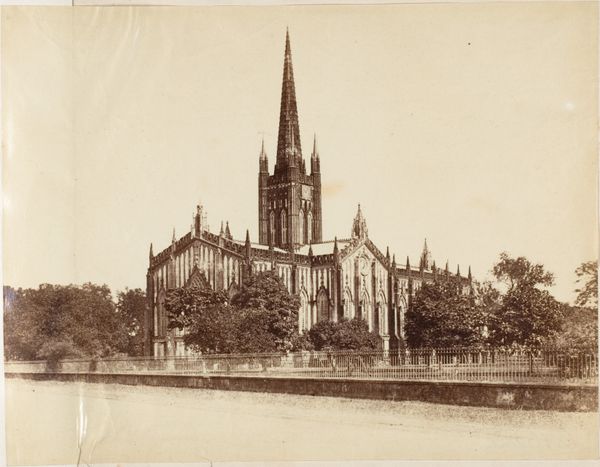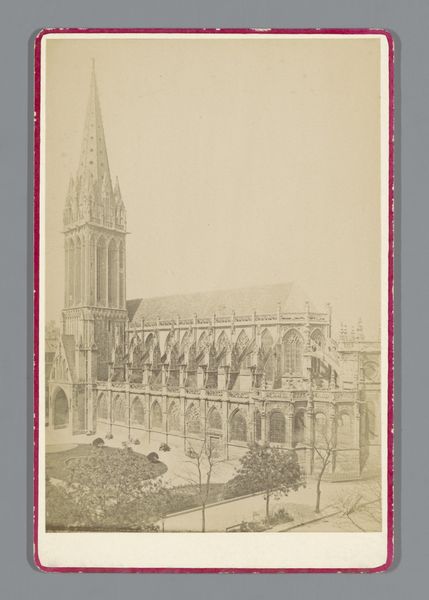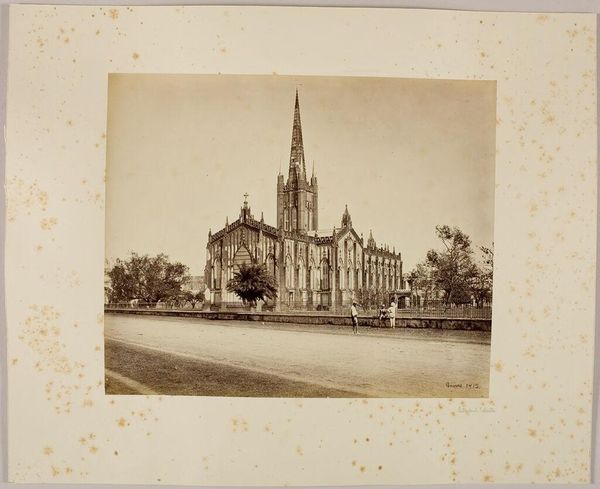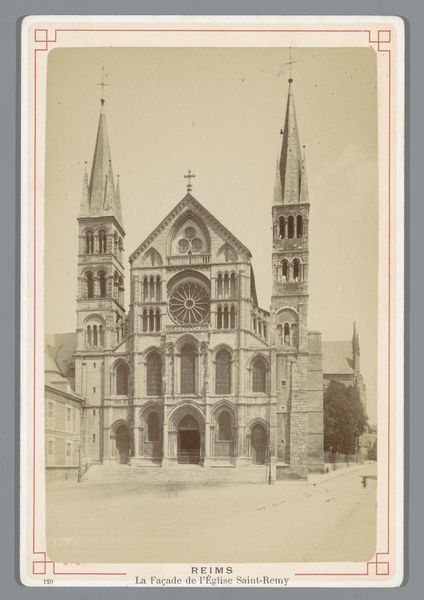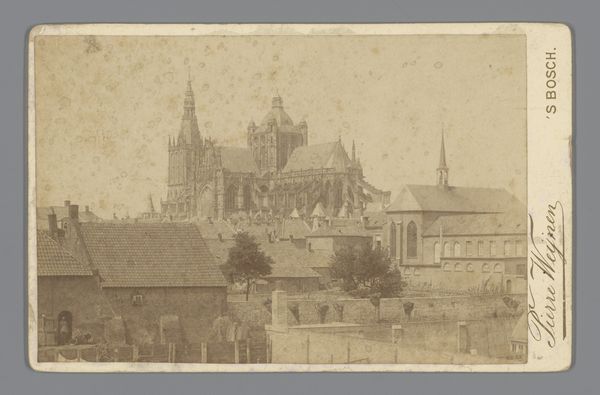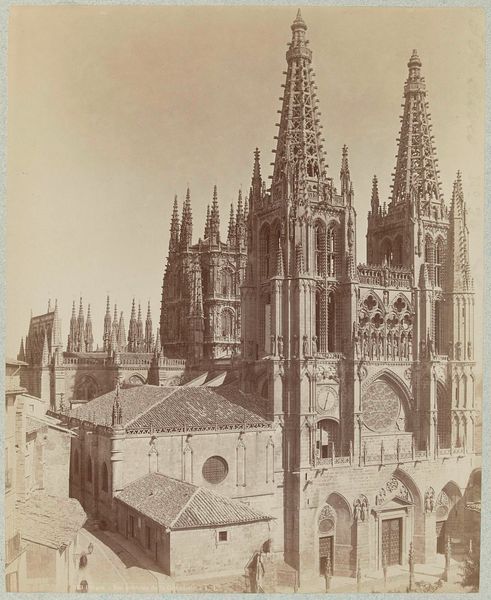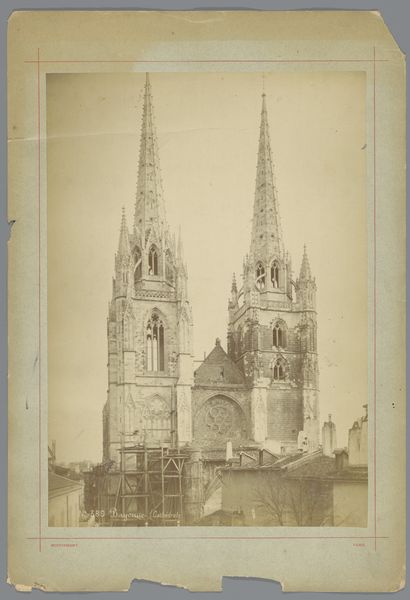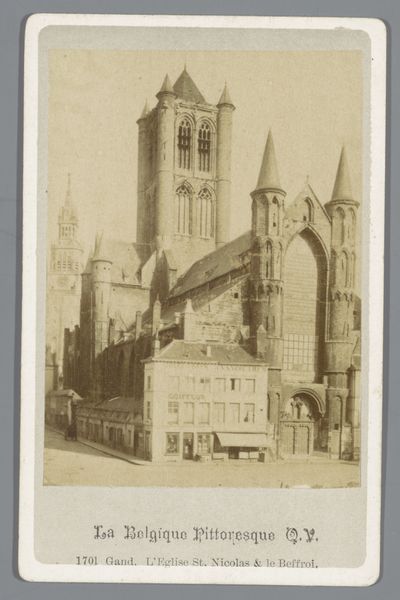
Dimensions: height 205 mm, width 280 mm
Copyright: Rijks Museum: Open Domain
Rudolph Tamme created this photograph of the Zwinger in Dresden using an unknown photographic process, likely in the mid-to-late 19th century. The image captures the Zwinger, a palatial complex, with the towers of a church rising behind it. This photograph offers insight into the cultural values of the time. In 19th-century Germany, art and architecture often served to project power, wealth, and a connection to historical traditions. The Zwinger itself, built in the Baroque style, was a symbol of Saxon royalty. Photography, still a relatively new medium, was being used to document and disseminate images of important cultural sites, reinforcing their significance. To understand the photograph fully, we would need to investigate the patronage and purpose behind its creation, along with the prevailing social and political currents of the time in Dresden. This kind of research is essential for art historians in interpreting how art reflects its social and institutional context.
Comments
No comments
Be the first to comment and join the conversation on the ultimate creative platform.
